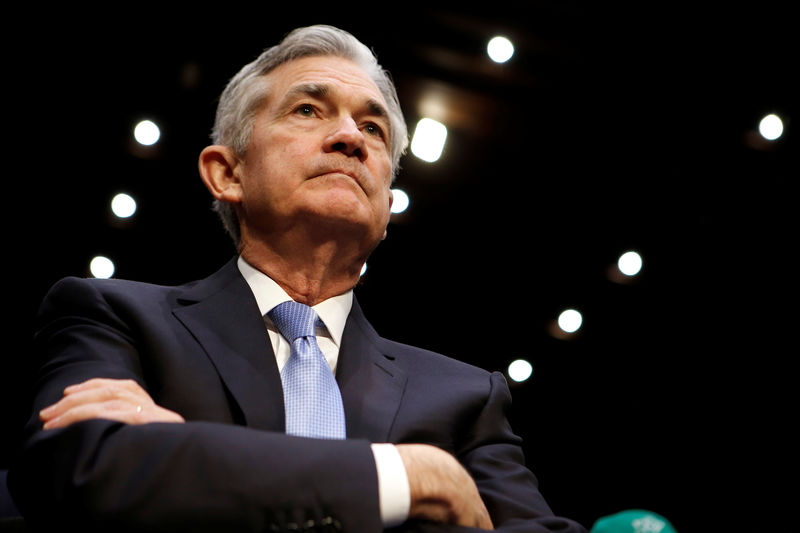By Yasin Ebrahim
Investing.com - Federal Reserve policymakers believe it will likely "take some time" until the economy generates substantial growth that would allow the central bank to consider tightening monetary policy, according to the minutes of the central bank's last policy meeting released Wednesday.
At the conclusion of its previous meeting on Jan. 27, the Federal Open Market Committee, the Fed's rate-setting arm, kept its benchmark rate in a range of 0% to 0.25% and bond purchases at a $120 billion monthly pace.
"The Committee's guidance for asset purchases indicated that asset purchases would continue at least at the current pace until substantial further progress toward its employment and inflation goals had been achieved. With the economy still far from those goals, participants judged that it was likely to take some time for substantial further progress to be achieved," the Fed said in the minutes.
The Fed's willingness to persist with the status quo of a lower-for-longer interest rate environment comes as the 10-2 Year Treasury yield spread curve, a gauge of the health of the economy, has widened to levels not seen since April 2017, on expectations for a speedier recovery and a pick up in inflation.
Federal Reserve officials, however, appear less concerned and believe any eventual inflation spike will prove short-lived.
"Many participants stressed the importance of distinguishing between such one-time changes in relative prices and changes in the underlying trend for inflation, noting that changes in relative prices could temporarily raise measured inflation but would be unlikely to have a lasting effect," the Fed minutes showed.
The 10-year inflation "breakevens,” a key measure of inflation expectations, are pricing in average annual inflation of about 2.2%, while the PCE index, the Fed's preferred inflation measures, was at 1.3% for December.
Powell reiterated earlier this month that inflation would be allowed to run above its 2% target, and insisted that while there was likely to be a "burst of spending" as the economy reopens, leading to some pressure on prices, runaway inflation was unlikely.
"As reading from March in April last year fall out of the 12 month window, we'll probably see an increase in [inflation] readings, ... but that won't be very large, or persistent in all likelihood," Powell said. "We also may see, as the economy reopens, a burst of spending as there's quite a lot of savings on people's balance sheet," leading to some pressure on prices.
